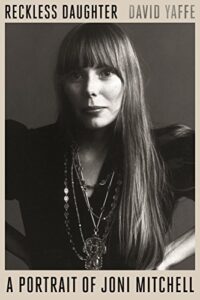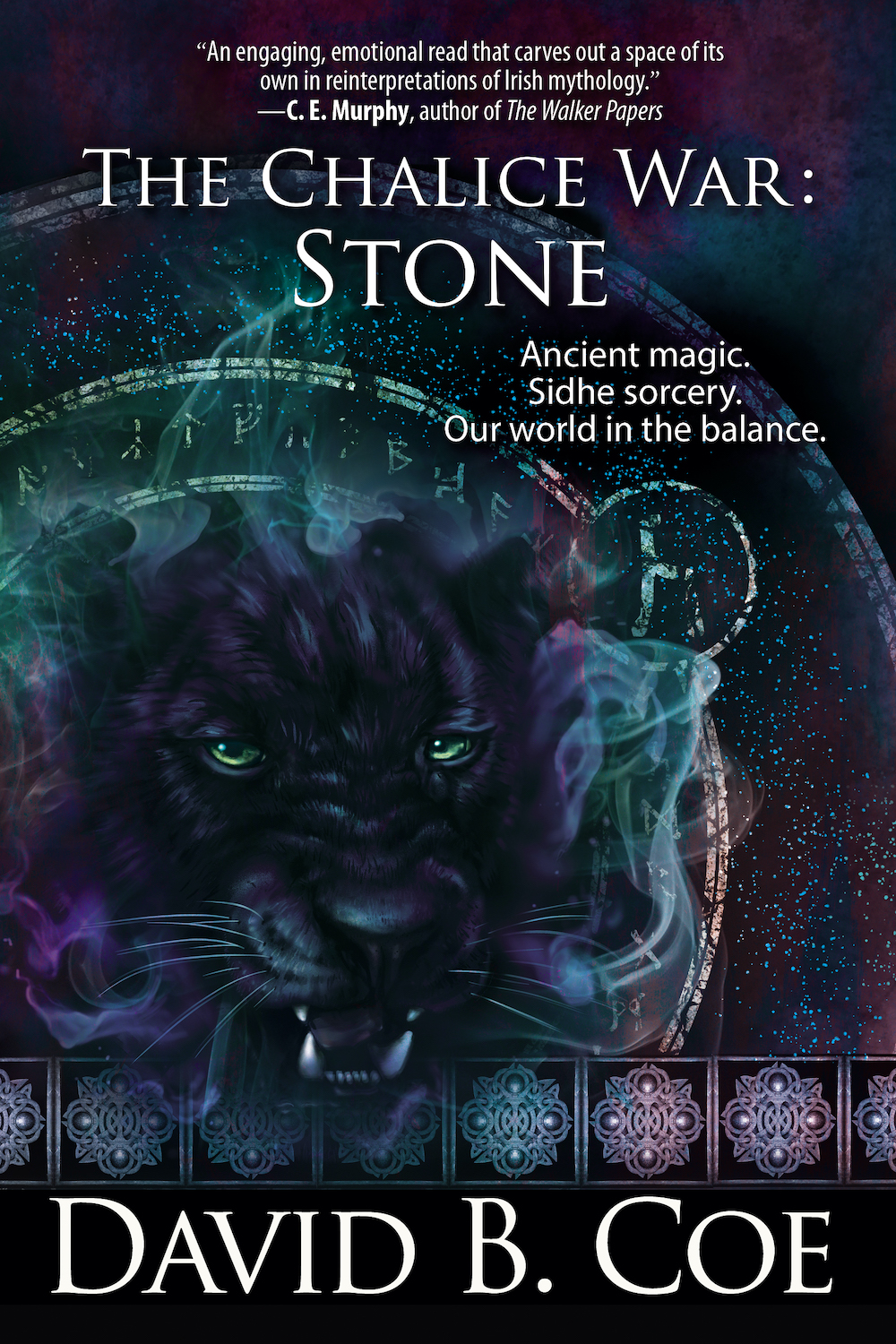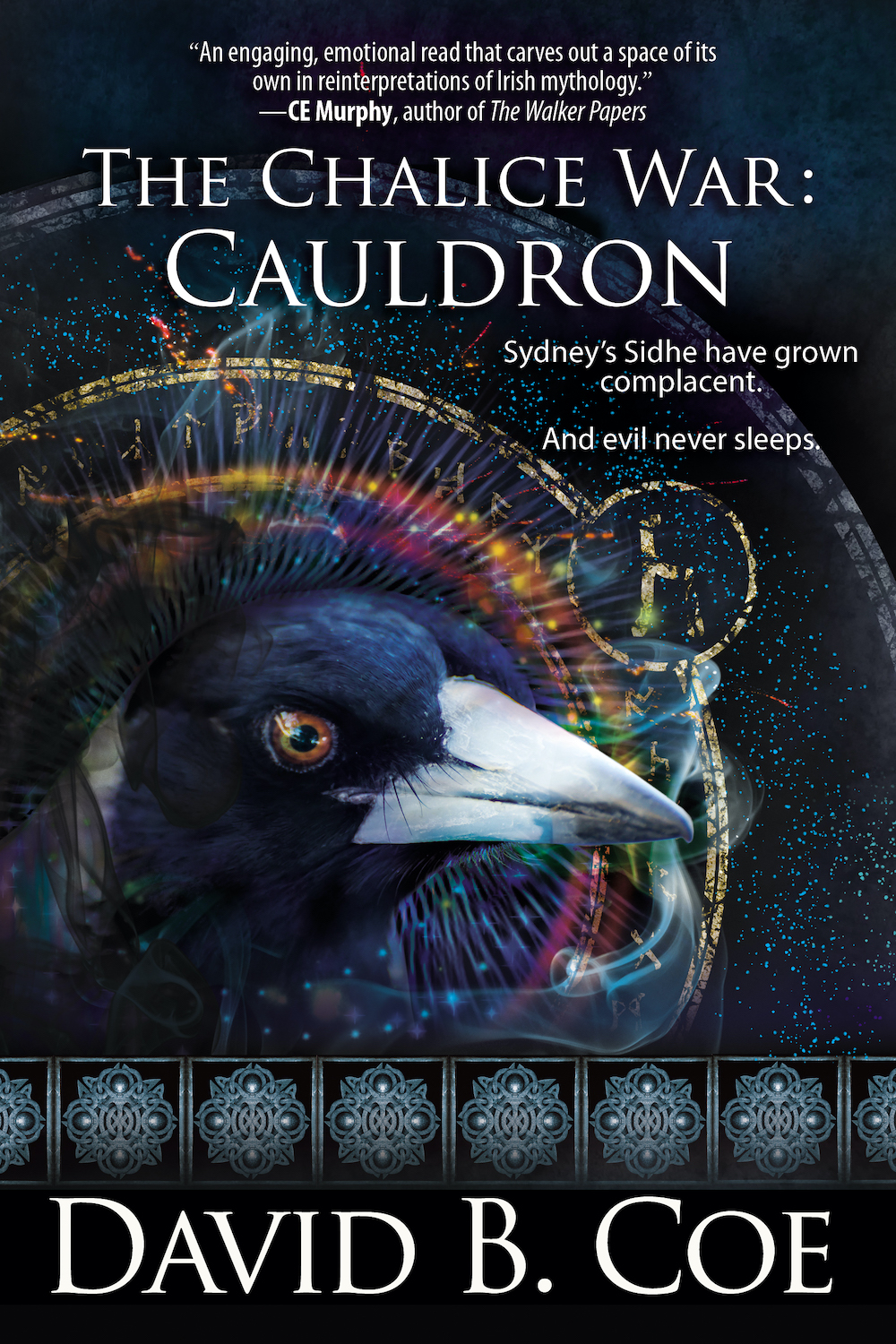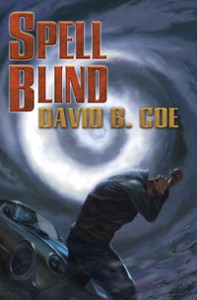Continuing my series of posts on “What Holds Me Back,” I turn today to more difficult issues. In my experience, the greatest challenges creators face are emotional ones, and I have struggled with such things throughout my career. This is a complex subject, and not one that’s easy to cover in a single post, though I intend to try. The problem is, the emotional obstacles we face are varied and at times debilitating. Imposter syndrome, lack of self-confidence (which is different), excessive comparison of our own achievements and disappointments with those of others — these things and more can keep us from accomplishing all we hope to.
I’m not going to hold back in this post. My own experiences will only be helpful for the rest of you if I’m completely honest, so that’s my intent.
Let me begin with the obvious: I have been a professional writer for close to thirty years and in my calmer, more rational moments, I feel pretty good about my abilities and also about what I have done over my decades in the business. While I’ve never been a huge name in the field, I have been publishing long and short fiction continuously for my entire career. I consistently get good reviews, I have won several awards, and I enjoy the respect of my peers. In short, I have no reason to be anything but proud of what I have achieved as a writer.
And yet . . . .
That is, as I say, the rational view of my professional life. The thing about all the emotions I mentioned in the opening paragraph is that they’re not rational. They’re anything but. Yet they are persistent and pervasive, and they can be utterly crippling.
I have written before about imposter syndrome. For those of you who are unfamiliar with the term, it is self-explanatory: Imposter syndrome is the unfounded belief that, despite our qualifications and successes, we are undeserving of our status and whatever accolades we might have received. I recall years ago talking about imposter syndrome with a friend, someone who was at the time far more established in the field than I, and who had enjoyed some serious commercial success. I asked this person when I could expect my imposter syndrome to go away. My friend laughed. “When you find out, let me know.”
Based on conversations I’ve had and on reading I’ve done, I sense that imposter syndrome is fairly common across the creative arts, affecting visual artists and writers, movie stars and rock ’n roll icons. (It also happens to be common among academics, so it seems I was destined to deal with it no matter which career path I followed.)
It may seem that lacking self-confidence is the same as suffering from imposter syndrome. And certainly a case can be made that a shortage of confidence contributes to what I’ve just described. But really they are separate phenomena. As I have said, imposter syndrome is a real problem for me personally, lack of self-confidence less so. Still, I have dealt with it off and on, and I have seen the impact a profound lack of confidence can have on talented writers. It can make them question their ideas, it can keep them from moving forward with manuscripts because they constantly retreat into rewrites of perfectly good stories in order to fix imagined problems, and worst of all, it can prevent them from sending out stories and books for consideration. That same lack of self-assurance can bring with it social anxieties that prevent writers from taking advantage of convention and workshop situations. As I said before, it can be debilitating.
And finally, I mentioned early in the post our tendency to compare ourselves excessively with our peers and colleagues. Another friend of mine once referred to this as Locus Syndrome, Locus being the newsletter of the science fiction and fantasy fields, where many in the industry announce awards, new contracts, sales of secondary rights, and other career milestones. I no longer subscribe to Locus because the arrival of each issue set off my worst comparison tendencies. Why is that publisher taking so-and-so’s novel when they passed on mine? Why did that person receive that award; why didn’t I? Why did my publisher take out a full-page ad for writer “x” when they merely included my book in a group advertisement?
No, I’m not kidding. I really did stuff like this to myself. More, I was hardly alone in this regard. And I can tell you, just as jealousy in a relationship can undermine love and trust, envy in one’s professional life destroys everything it touches. Many of the people I envied I also considered friends, and my jealousy of their triumphs kept me from being fully happy for them, as I should have been. It placed a strain on our relationships.
Imposter syndrome, lack of confidence, envy directed at colleagues — all of these have held me back at one time or another over the course of my career. And I would argue that all are exacerbated by a simple truth about the writing industry and the arts in general: the markers we use to chart our progress and our achievements, all tend to be external. Reviews and awards, story or book sales and new contracts, Amazon rankings and royalty statements. Not only do these forms of feedback come from outside, they all lie well beyond our control. Sure, we can publicize our work and hope that will impact our numbers. And yes, we can write our books well, and so influence reviews. But really our reach in terms of sales and reviews is quite limited.
And this is why I often return to the idea of self-defining our successes. There are a lot of authors out there these days, and they’re producing a lot of books. There’s no guarantee that our book is going to be noticed or reviewed. There is no guarantee it will sell. Which means one of two things — either the lack of attention is going to make us jealous of more successful writers and cause us to question our talent, our imagination, the quality of our work, OR we are going to take satisfaction in our own achievements regardless of the feedback we get externally.
I’m not naïve. Like I said, I’ve been in the business for thirty years. I’ve seen a lot, experienced a lot, had my share of both triumphs and disappointments. I know better than most how publishing works. Obviously, we need good sales to further our careers. Obviously, we want good reviews to help us gain recognition for our work. I would never claim otherwise. What I’m saying is this: NOT getting those things does not mean our work is unworthy. It does not mean we don’t belong in the profession. It should not cause us to question all. And to be honest, I am saying these things — again — as much for myself as for you. We all need to hear it.
Keep writing.









 Recently, I have been reading a biography of Joni Mitchell (a holiday gift from my older daughter), a long-time favorite of mine and, in my opinion, the finest songwriter in the history of rock and roll (more on that shortly). It’s been an interesting read — the author is a bit fawning for my taste, and a bit too eager as well to weave Mitchell’s (admittedly phenomenal) lyrics into his prose. But as is often the case when I read biographies of artists I admire, the book made me think about creativity and the artistic process.
Recently, I have been reading a biography of Joni Mitchell (a holiday gift from my older daughter), a long-time favorite of mine and, in my opinion, the finest songwriter in the history of rock and roll (more on that shortly). It’s been an interesting read — the author is a bit fawning for my taste, and a bit too eager as well to weave Mitchell’s (admittedly phenomenal) lyrics into his prose. But as is often the case when I read biographies of artists I admire, the book made me think about creativity and the artistic process. As I have mentioned previously, the release of the first book in my upcoming Celtic urban fantasy, The Chalice War (
As I have mentioned previously, the release of the first book in my upcoming Celtic urban fantasy, The Chalice War (
 I’ll preface this discussion with the obvious: I’m old. I’ve been in this business for a long time — it’s been nearly three decades since I signed my first contract. When I got started in the business, publishers were just beginning to expect that writers would maintain websites. Websites! Facebook and Twitter and the rest didn’t even exist. And when we signed contracts, writers could rightfully expect that our publishers would handle the bulk of the necessary publicity, which consisted mainly of taking out ads in journals, sending review copies to print magazines (kids, ask your parents) and other critical venues, setting up newspaper, radio, and television interviews, and arranging signing tours and individual store events.
I’ll preface this discussion with the obvious: I’m old. I’ve been in this business for a long time — it’s been nearly three decades since I signed my first contract. When I got started in the business, publishers were just beginning to expect that writers would maintain websites. Websites! Facebook and Twitter and the rest didn’t even exist. And when we signed contracts, writers could rightfully expect that our publishers would handle the bulk of the necessary publicity, which consisted mainly of taking out ads in journals, sending review copies to print magazines (kids, ask your parents) and other critical venues, setting up newspaper, radio, and television interviews, and arranging signing tours and individual store events. Blogging and social media are extras. Yes, in this day and age, they are important extras. Crucial, some might say. We have to publicize our books, or no one will buy them or read them. But as vital as this part of the job might seem, I would once again turn the previous phrase on its head: We have to publicize in order to be read? Yes, we do. But more important by far is this: We have to write the books in order for any of that publicity to be worth a damn.
Blogging and social media are extras. Yes, in this day and age, they are important extras. Crucial, some might say. We have to publicize our books, or no one will buy them or read them. But as vital as this part of the job might seem, I would once again turn the previous phrase on its head: We have to publicize in order to be read? Yes, we do. But more important by far is this: We have to write the books in order for any of that publicity to be worth a damn. And I did. The book was Invasives, by the way. It contains the best character work I’ve ever done, and that is no coincidence.
And I did. The book was Invasives, by the way. It contains the best character work I’ve ever done, and that is no coincidence. Right around the holidays, I was shouting from the virtual rooftops about my new Celtic urban fantasy trilogy, The Chalice War, which would be coming out early in 2023. The first book, I bellowed (virtually), would be coming out in February, and it would be called The Chalice War: Stone. It would be followed, a month or so later, by The Chalice War: Cauldron, and then a couple of months after that by the finale, The Chalice War: Sword.
Right around the holidays, I was shouting from the virtual rooftops about my new Celtic urban fantasy trilogy, The Chalice War, which would be coming out early in 2023. The first book, I bellowed (virtually), would be coming out in February, and it would be called The Chalice War: Stone. It would be followed, a month or so later, by The Chalice War: Cauldron, and then a couple of months after that by the finale, The Chalice War: Sword. Some years later, soon after the release of Spell Blind, the first book in The Case Files of Justis Fearsson, another Amazon reviewer panned the book because my book was “a blatant rip-off” of Jim Butcher’s Harry Dresden books, “a ludicrous case of copycatting.” For the record, I didn’t copy Dresden at all. I had only read the first two books of the series, and the “copycatting” the reviewer claimed I’d done amounted to using tropes of the genre, not elements of Butcher’s work. And so I responded to the review, wanting to set the record straight.
Some years later, soon after the release of Spell Blind, the first book in The Case Files of Justis Fearsson, another Amazon reviewer panned the book because my book was “a blatant rip-off” of Jim Butcher’s Harry Dresden books, “a ludicrous case of copycatting.” For the record, I didn’t copy Dresden at all. I had only read the first two books of the series, and the “copycatting” the reviewer claimed I’d done amounted to using tropes of the genre, not elements of Butcher’s work. And so I responded to the review, wanting to set the record straight. During our tour, we encountered many people selling pottery in front of their homes. And at one table, a mother displayed her wares beside those of her young daughter. I think the girl must have been around 7 or 8, give or take a year, and she had made a few small bowls, seed pots, and dishes. And she had made a tiny storyteller. As one would expect, it was quite crude compared to those we had seen for sale back in Albuquerque (we hadn’t yet been to Santa Fe or Taos), but something about the figure spoke to me. Maybe is was just that the storyteller was so cute. Or maybe it was that the girl herself was so proud of it. Or maybe I saw in this child’s early effort to follow in her mother’s footsteps something akin to my dream of becoming a professional writer. Whatever the reason, I asked the girl how much it cost.
During our tour, we encountered many people selling pottery in front of their homes. And at one table, a mother displayed her wares beside those of her young daughter. I think the girl must have been around 7 or 8, give or take a year, and she had made a few small bowls, seed pots, and dishes. And she had made a tiny storyteller. As one would expect, it was quite crude compared to those we had seen for sale back in Albuquerque (we hadn’t yet been to Santa Fe or Taos), but something about the figure spoke to me. Maybe is was just that the storyteller was so cute. Or maybe it was that the girl herself was so proud of it. Or maybe I saw in this child’s early effort to follow in her mother’s footsteps something akin to my dream of becoming a professional writer. Whatever the reason, I asked the girl how much it cost. That was a magical day in many ways. Acoma was as beautiful as we had been told, the pale red stone of the Pueblo seeming to glow beneath a deep azure sky, wooden kiva ladders rising above their structures and reaching toward the clouds. At one point, I spotted a rainbow in the clouds overhead — there was no rain, just the prismatic color, which appeared for a moment and then vanished. I think I was the only one on the tour who saw it. I believed that, together, the rainbow and my little storyteller were omens, signs that my dream would, in fact, come to pass.
That was a magical day in many ways. Acoma was as beautiful as we had been told, the pale red stone of the Pueblo seeming to glow beneath a deep azure sky, wooden kiva ladders rising above their structures and reaching toward the clouds. At one point, I spotted a rainbow in the clouds overhead — there was no rain, just the prismatic color, which appeared for a moment and then vanished. I think I was the only one on the tour who saw it. I believed that, together, the rainbow and my little storyteller were omens, signs that my dream would, in fact, come to pass. The first deadline I missed was on my second novel, The Outlanders, the middle book of the LonTobyn Chronicles trilogy. And I had good excuses. Between the time I started writing the book, and the day the first draft of the manuscript was due to Tor, our first child was born, my mother died, my father died, and my siblings and I had to settle my father’s estate.
The first deadline I missed was on my second novel, The Outlanders, the middle book of the LonTobyn Chronicles trilogy. And I had good excuses. Between the time I started writing the book, and the day the first draft of the manuscript was due to Tor, our first child was born, my mother died, my father died, and my siblings and I had to settle my father’s estate.